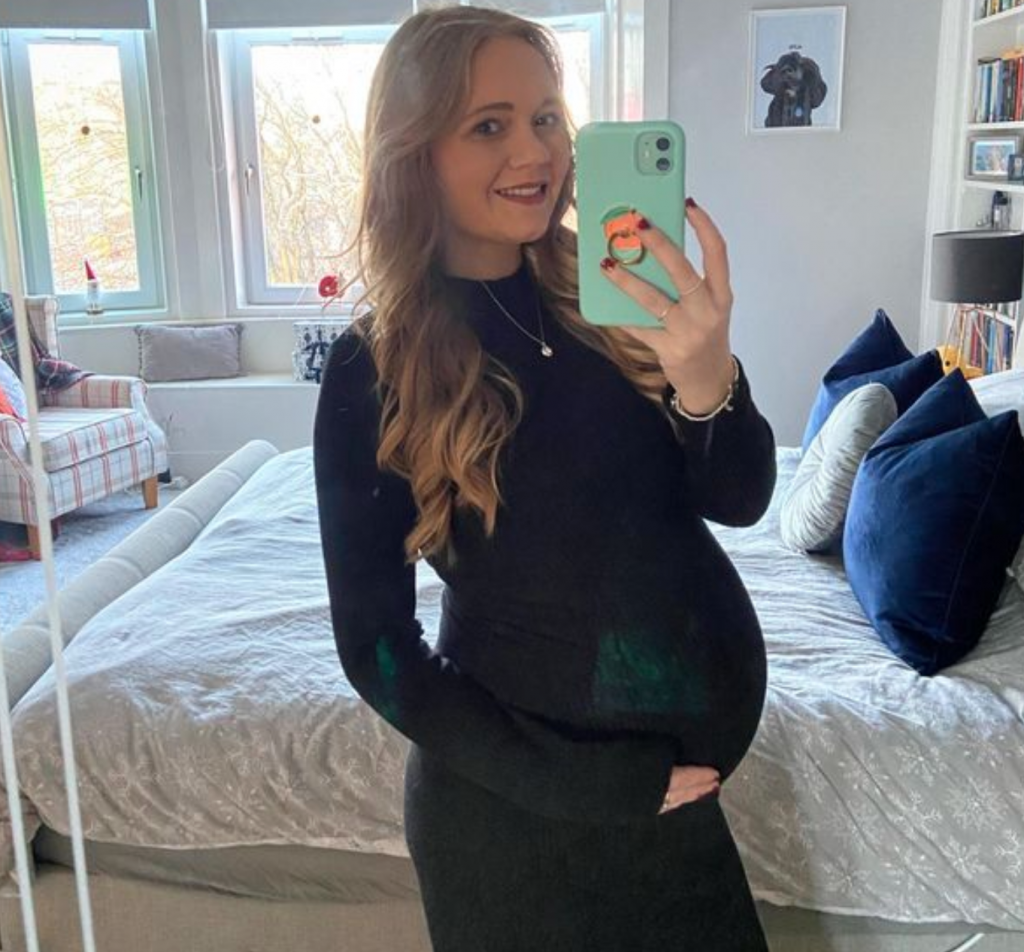A Delayed Diagnosis
- Nicola Cameron had just delivered a healthy, baby girl in January, when suddenly she started suffering from horrific pelvic pain.
- This was not the first time the new mom had experienced strange symptoms, and doctors continued to blame it on other conditions until they finally found her stage 3 cervical cancer.
- Many people are not aware that the human papillomavirus virus (HPV), a highly common sexually-transmitted disease, causes cervical cancer and many other types of cancer. Starting at age 25, a cervical screening is recommended for all women, mainly to check for this type of cancer, which is much easier to treat if caught early.
Initially told by doctors that it was just “scar tissue,” then an “abscess,” she later found out it was much more serious: stage three cervical cancer.
Read More
But after she delivered, the “horrific” abdominal and back pain was still there. Yet again, the symptoms were explained away. The culprit this time? Having a C-section.
“The pain was getting worse and worse by the day and I just knew it couldn’t be down to the pregnancy as I had never heard of anyone feeling this way before, throughout and after the birth. It just didn’t feel right at all,” Nicola told LanarkshireLive.
“The doctors and health visitor then put it down to scar tissue after my daughter was born,” she continued of her unfortunate health journey. “When I started to lose weight rapidly I was beginning to get worried. I had been on about 16 painkillers a day since the middle of May.”
An Advanced Stage Cervical Cancer Diagnosis
When doctors first found the tumor, which they first labeled as an “abscess,” tragically, they also discovered that the cancer had spread to the her pelvis, her uterine wall, and potentially her lymph nodes.
“They think that my pregnancy hid the tumour for all those months,” Nicola explained of the horrific delayed diagnosis. “I had so many blood tests done and was in constant pain and on medication and it’s hard to think that it was missed for all that time.”
Despite all the physical and mental obstacles she has gone throughand will continue to go throughthe tough mom says she feels “positive,” and has started “embracing the whole process.” She even shaved her head before starting treatment.
Commendably, Nicola is using her voice to help save others. “I urge anyone who knows that something is not right with their body to listen to their gut instinct and keep pushing for answers,” she said, noting that she just knew deep down that her pain was not from pregnancy and scar tissue, despite what she was told over and over.
” … arrange a doctors appointment asapit could be a matter of life and death.”
Cervical Cancer Survivor Hannah Park Was Shocked After Her TikTok Video Went Viral
The Link Between HPV and Cervical Cancer
Many people are not aware that the human papillomavirus virus (HPV), a highly common sexually-transmitted disease, causes cervical cancer and many other types of cancer.
"HPV is present in 96% of all cervical cancers and is the leading cause of cervical cancer in the United States," Dr. Bobbie J. Rimel, gynecologic oncologist at Cedars-Sinai Medical Center in Los Angeles, CA, tells SurvivorNet.
HPV and Cancer Risk The Basics
Starting at age 25, a cervical screening is recommended for all women, mainly to check for this type of cancer.
"Many times, women have a speculum exam and they assume they've had a cervical screening test," says Dr. Kimberly Levinson, Director of Johns Hopkins Gynecologic Oncology at Greater Baltimore Medical Center.
"It's important to ask your doctor, 'Was a screening exam performed?’" she advises. "I can't tell you how many times I've asked someone and they don't know if they've actually had a cervical screening."
The HPV Vaccine
The HPV vaccine protects against not only cervical cancer, but also vaginal and vulvar cancers in women, and genital warts and anal cancer in both men and women.
The original FDA approval of the Gardasil-9 HPV vaccine included young people ages 9 to 26, but it has since been expanded to include men and women ages 27 to 45. When given in two doses, spaced 6 to 12 months apart, the vaccine can prevent more than 90% of HPV- related cancers.
Related: New Cervical Cancer Screening Guidelines Recommend HPV & Pap Testing Now Start at Age 25
Kids as young as 9 can get Gardisil, and the earlier the better, says Dr. Rimel. "The immune system of children is very robust and their ability to create a long, lifelong immunity based on a vaccination is greater than in the adult body."
Still, contemplating a vaccine that protects against a sexually transmitted infection might give parents pause. "A lot of parents wonder about vaccinating their children for HPV, because they recognize that HPV transmission is primarily through sexual contact," Dr. Rimel says.
For any parent who is on the fence, she says the virus can pass from person to person through any type of sexual contact, not just intercourse. And once someone has been infected with HPV, it can't be reversed.
Related: Should I Give My Kids the HPV Vaccine? A Leading Doctor On Why She Says ‘Yes!’
Rimel is so convinced about the benefits of the HPV vaccine that she's had both of her children vaccinated.
"The best thing I can do to protect them is provide them with vaccination that prevents them from picking up an HPV that's going to cause them harm in the future," she says. "HPV vaccination is the single greatest anti-cancer move we can make for our children today."
Learn more about SurvivorNet's rigorous medical review process.

